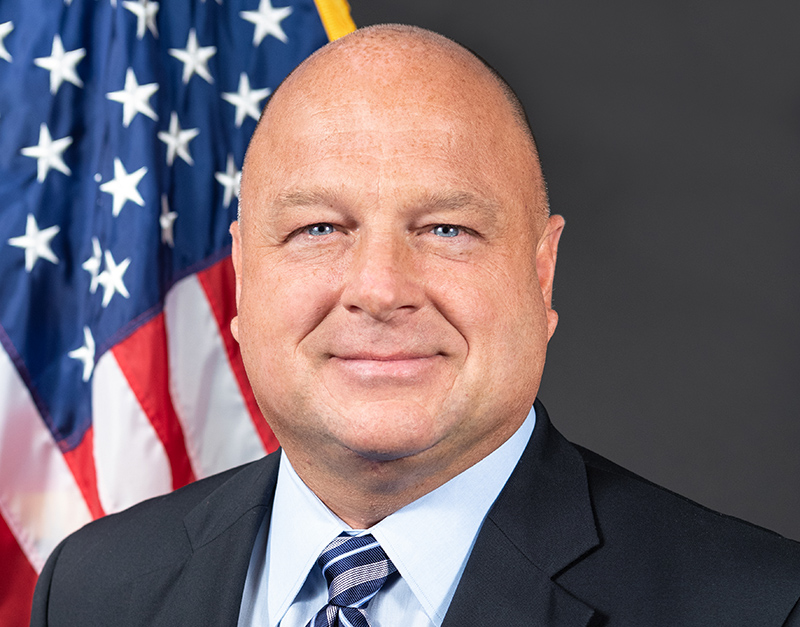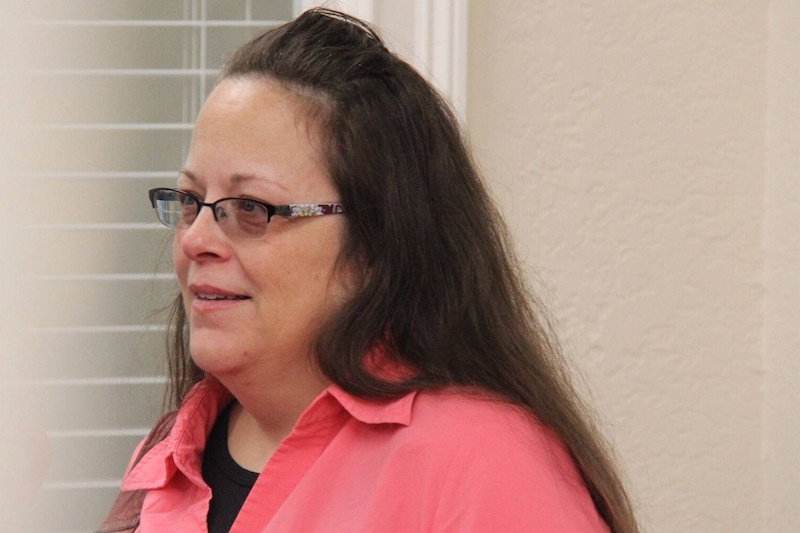Most Americans Say Gay Marriage Is Good for Society
Majority of Americans express positive views of same-sex nuptials, though stark divides persist based on religious and political affiliation.

As the U.S. Senate takes up a bill to require the federal government to recognize same-sex marriages as valid this afternoon, a recent poll shows that a strong majority of Americans claim that legalizing same-sex marriage has been good for society.
The poll, conducted by the Pew Research Center, finds that more than six in 10 American adults believe legalizing same-sex nuptials has been positive for society, including 36% who say it is very good for society. About 37% say it has been a negative for society, with half of those, or 19%, saying it is very bad.
The poll has a margin of error of plus or minus 1.7 percentage points.
According to the survey, which interviewed more than 5,000 U.S. adults who are members of Pew Research Center’s American Trends Panel between Oct. 10-16, ahead of this year’s midterm elections, views on the issue of same-sex marriage remain largely unchanged from 2019, but represent a significant and dramatic increase in public support for the practice since nearly two decades ago.
As recently as 2004, when voter-approved bans on same-sex marriage were passed with overwhelming support, Americans opposed allowing same-sex couples to wed by a nearly 2-1 margin.
Opinions on same-sex marriage’s impact on society vary by age, education, and especially by political affiliation and religion.
While a majority of every age group and educational level say same-sex marriage has generally been a positive development, support generally increases the younger a person’s age, with 75% of those aged 18-29 expressing that view, compared to 50% of people over 65.
Support for same-sex unions also increases the higher a person’s level of educational attainment, with 71% of people with postgraduate degrees saying allowing same-sex marriage has been positive, compared to only 51% of those with a high school education or less.
The starkest difference emerges by political affiliation with 80% of Democrats and Democratic-leaning independents saying same-sex marriage has been a positive development for society, compared to 19% who say it has been bad.
Among Republicans and Republican-leaning independents, only 43% say same-sex nuptials are a positive development, while 55% say it has been a negative development for society.
While 71% of white evangelical Protestants say legalizing same-sex marriage is bad for society, 62% of white non-evangelical Protestants say it’s good for society, as do 66% of Catholics and 82% of religiously unaffiliated individuals.
Black Protestants are evenly divided on the issue, with 49% saying it’s been a positive development and 46% saying it’s a negative development.
Pew Research Center’s latest poll drops just as the U.S. Senate is taking preliminary procedural votes to start debate on the Respect for Marriage Act, a bill that would require both the federal government and state governments to recognize same-sex marriage licenses from states where the practice is not explicitly prohibited by statute or constitutional amendment — or about 15 states in total.
The bill is being introduced as a failsafe to protect recognition of same-sex marriages in the event that the U.S. Supreme Court reverses its own precedent and overturns its landmark 2015 decision striking down all state-level bans on same-sex marriage.
The bill does not require individual states with existing prohibitions to issue marriage licenses themselves, but does require government officials to recognize licenses from states where same-sex marriage is permitted.
Given the divisions among Americans, particularly with respect to political affiliation, highlighted in the Pew poll, it is clear why supporters of the Respect for Marriage Act have been lobbying Republican senators behind the scenes, trying to get at least 10 Senate Republicans to agree to back procedural votes to end debate on a piece of legislation before it can receive an up-or-down vote by the full chamber.
It also explains why Republican senators have been more circumspect about their potential support for the Respect for Marriage Act, given the backlash they might receive from the half of the party that opposes same-sex unions.
Currently, four Republicans have come out publicly in favor of the bill: Senators Susan Collins (Maine), Thom Tillis (North Carolina), Rob Portman (Ohio), and Lisa Murkowski (Alaska).
Sen. Mitt Romney (Utah) has said he’ll support the final bill if it a proposed amendment outlining religious liberty protections is added to it, bringing supporters halfway to their goal of unearthing 10 Republican supporters.
Social conservatives have pounced on the bill, arguing that it fails to provide sufficient protections for individuals who personally oppose same-sex marriage.
The right-wing Liberty Counsel declared that should the bill pass “gender will be irrelevant, not only in marriage, but also in any aspect of American life.”
The organization, known for its anti-LGBTQ activism, has argued that if the Defense of Marriage Act is unconstitutional because marriage has largely been left to individual states to set their own laws, then Congress has no right to require states with bans to recognize same-sex marriage licenses from other jurisdictions where the practice is permitted, thereby making the Respect for Marriage Act unconstitutional as well.
“HR 8404 will trample upon religious freedom,” Liberty Counsel Founder and Chairman Mat Staver said in a statement. “It will undermine the 303 Creative case currently before the U.S. Supreme Court and will force individuals who engage in artistic expression to violate their religious convictions concerning marriage. Congress has absolutely no authority to regulate marriage within the several states. This bill should be defeated now or it will be defeated in the courts later.”
In a press call held by the Human Rights Campaign on Wednesday, Nov. 16, Cathryn Oakley, the state legislative director and senior counsel at HRC, said that the Respect for Marriage Act has inaccurately and incorrectly classified as a sweeping overreach, when in fact it is narrowly limited in terms of its scope.
“Congress has done absolutely everything in this bill that it can responsibly do,” Oakley said. “In terms of what Congress can be assured that they can responsibly do around federal marriage equality, what they can do is ensure that the federal government is respecting same-sex marriages. What they can do is ensure that states are abiding by full faith and credit of other state laws. What they do not have the ability to responsibly do, is to tell states that they must marry two people of the same sex.”
Mary Bonauto, senior director of civil legal rights and legal strategies at GLBTQ Legal Advocates and Defenders, said the bill is intended to be directed at state and federal officials who are implementing laws and being asked to recognize the validity of legally-performed same-sex marriages.
“To the extent that anyone wanted to assert anything, there is a provision in the bill that says that nothing in the Respect for Marriage Act, or any amendment of it, would change individual constitutional rights or federal statutory rights about conscience and free exercise,” she said.
LGBTQ advocates have urged senators of all parties to pass the bill, which would provide some measure of stability for same-sex couples should the Supreme Court reverse its previous decisions on same-sex marriage.
“We must reinforce the freedom to marry — progress we thought was settled — and the Respect for Marriage Act can do much to achieve that goal,” Kierra Johnson, executive director of the National LGBTQ Task Force Action Fund, said in a statement.
“The RMA would require marriages to be recognized in any state if the marriages were valid in the state where it was performed,” she added. “The RMA also would repeal the Defense of Marriage Act, which defined marriage as the union of one man and one woman and allowed states to not recognize same-sex marriages performed in other states. This unconstitutional law, deemed so by the Supreme Court’s U.S. v. Windsor and Obergefell v. Hodges rulings, should be removed from the books for the symbol of discriminatory bipartisan compromise it was in 1996 and still is today.”
Support Metro Weekly’s Journalism
These are challenging times for news organizations. And yet it’s crucial we stay active and provide vital resources and information to both our local readers and the world. So won’t you please take a moment and consider supporting Metro Weekly with a membership? For as little as $5 a month, you can help ensure Metro Weekly magazine and MetroWeekly.com remain free, viable resources as we provide the best, most diverse, culturally-resonant LGBTQ coverage in both the D.C. region and around the world. Memberships come with exclusive perks and discounts, your own personal digital delivery of each week’s magazine (and an archive), access to our Member's Lounge when it launches this fall, and exclusive members-only items like Metro Weekly Membership Mugs and Tote Bags! Check out all our membership levels here and please join us today!




























You must be logged in to post a comment.